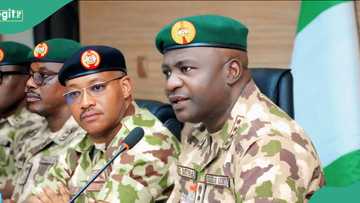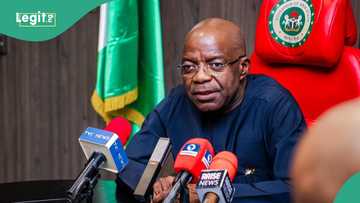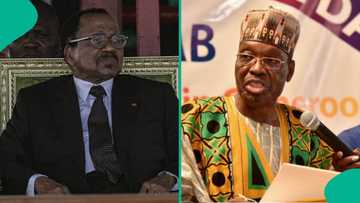“Why We Don’t Need Military Coup”: Letter Provides Answer Amidst Alleged Attempt to Overthrow Tinubu
- Rumours of a military coup in Nigeria have sparked nationwide concern following allegations of a plot to overthrow President Bola Ahmed Tinubu
- A letter published in the Nigerian Tribune by Mumin Ibadan strongly condemned any unconstitutional attempt to seize power, urging surveillance and reform within the military
- The writer warned that coup sentiments online reflect growing public frustration over insecurity and economic hardship
A letter published in the Nigerian Tribune on October 20 has reignited public discourse around the stability of Nigeria’s democracy, following widespread rumours of a military coup targeting President Bola Ahmed Tinubu’s administration.
Written by Mumin Ibadan, the letter strongly opposed any attempt to destabilise the government through unconstitutional means.
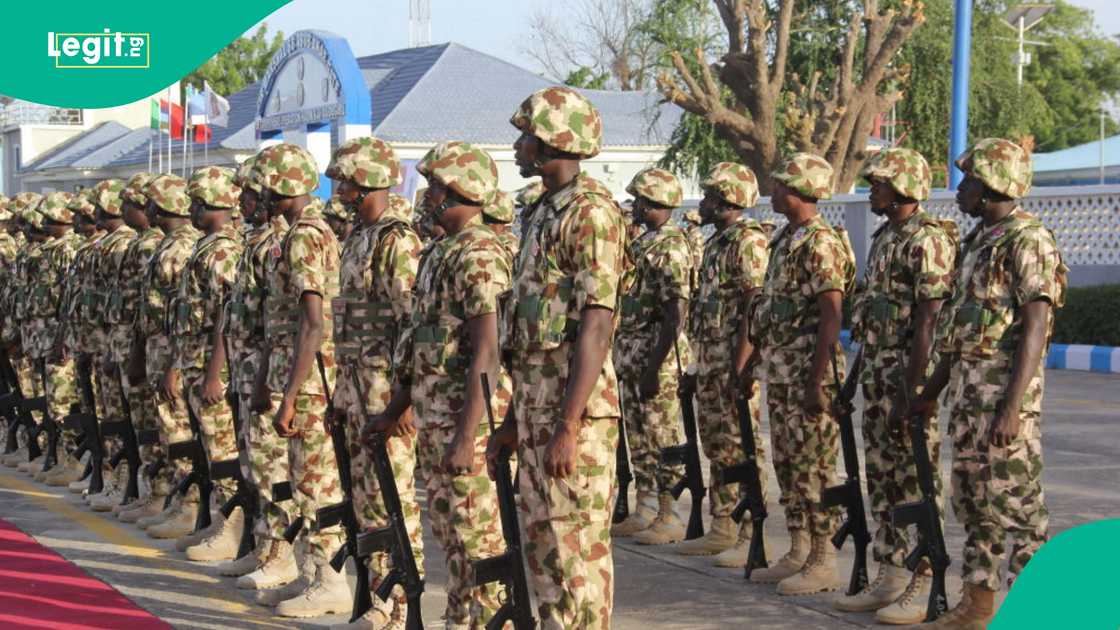
Source: Getty Images
Coup rumour in Nigeria raises alarm
In the letter, Mumin claimed that “there are strong indications that the top military personnel might be secretly planning with some other aggrieved politicians to overthrow this government following the incessant killing of innocent Nigerians everyday.”
He referenced online reports alleging that 16 soldiers had been arrested for plotting to overthrow President Tinubu, though this claim was swiftly refuted by the Director of Defence Information, Tukur Gusau, who dismissed the story as false and advised the public to “take it with a pinch of salt.”
Mumin acknowledged the prevalence of misinformation, stating:
“We all know that many rumours are false, some can be based on partial truth.”
Nonetheless, he called for proactive measures, recommending that “presidency should implement mass surveillance on its top military personnel to prevent future coup in Nigeria.”
The writer posed a direct question to readers: “Do we really need military coup in Nigeria now?” His answer was unequivocal—“I will say NO.”
He warned that any military personnel found conspiring to overthrow the government should be “caught red-handed and charged with treason.”
Mumin argued that while coup rumours can sometimes be rooted in reality, they must be treated with seriousness.
“Can a coup rumour turn out to be true? Yes. This is the reason why the presidency should begin to monitor its high-ranking military personnel and some other aggrieved politicians,” he wrote.
He also criticised the government’s response to public grievances, noting that “Nigerians are publicly complaining of hunger and insecurity.”
According to Mumin, citizens who express frustration through writing risk arrest and prosecution, a trend he condemned.
Nigerian army urged to focus on security
Mumin called on the Nigerian Army to remain committed to its constitutional role, stating:
He added that:
“any soldier who wishes to rule us is expected to go and retire and join politics,” emphasising that “Nigeria is not a Burkina Faso where Military personnel can easily take over government.”
He further advised President Tinubu to follow the example of former President Olusegun Obasanjo by retiring military generals who may harbour ambitions of political power.
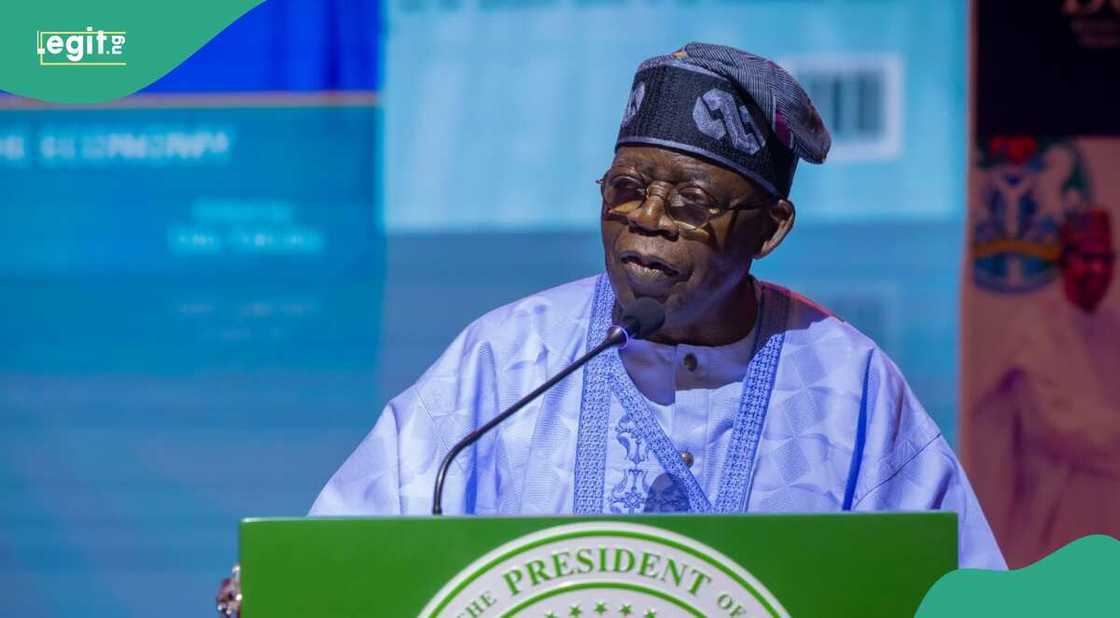
Source: Facebook
Military rule in Nigeria
Nigeria has experienced multiple military coups since independence, shaping its political trajectory for decades.
Nigeria’s history of military coups began with the first in January 1966, when young officers led by Major Chukwuma Kaduna Nzeogwu overthrew the First Republic, resulting in the assassination of key leaders including Prime Minister Tafawa Balewa.
Between 1966 and 1999, Nigeria was predominantly under military rule, with only brief democratic interludes.
The country transitioned to civilian governance in 1999, marking the beginning of the Fourth Republic, which has remained intact despite occasional coup rumours.
Full list of military coups in Nigeria
Legit.ng earlier reported that Nigeria has experienced a tumultuous past, with numerous military coups shaping the country's history since gaining independence in 1960.
Source: Legit.ng


